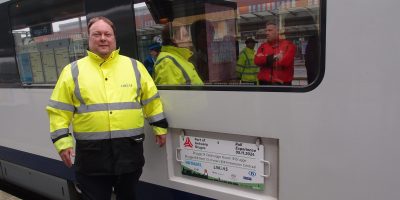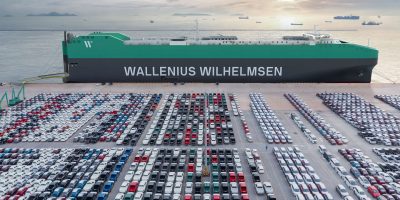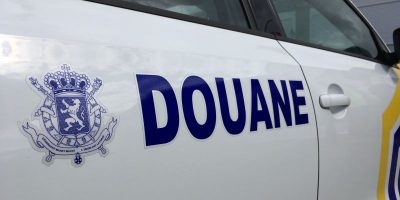
For the typical fast ro-ro services with the UK, the digitisation of Customs & Excise is a boon. “Due to the automated control selection, carriers know within the minute which cargoes are allowed to leave immediately.”
You can also read this contribution in the paper Flows magazine.
“We are fans of all this activity and like to play our role of facilitator for firms developing new traffics,” Oostenden-based Stephan Legein (62) points passionately to the port quays. With more than 40 years of service at Customs & Excise, the advisor general is ideally placed to explain the specific points of interest for coastal ports and the nearby hinterland.
“Our operation in the coastal region falls under the East and West Flanders Regional Directorate, led from Ghent. We have operational teams in West Flanders of 105 people in Zeebrugge, 44 in the port and airport in Ostend and 45 in Roeselare. A detection team of about 15 people operates from Bruges.”
UK like China
The coastal region was on the front line of brexit. “That has still not been finalised on the UK side: the final phase will only come in the autumn. Unlike in the United Kingdom (UK), where political decision-making dragged on until the last minute, we were well prepared with extra staff and adapted software. We had to be, because the strength of the ro-ro operators in Zeebrugge is precisely the speed at which they transfer unaccompanied goods. They cannot afford to leave a cargo idle for a week. Working closely together, we prepared for brexit and in the first weeks we assisted them on the ground. We can say that the transition was smoothly digested. However, it is still not easy. For the first time since 1992, the UK once again became a ‘third country’ with all the drawbacks that come with it. We have to apply the same regime as for say China, Chad or any other country with which the EU has no bilateral agreement.”
A thousand selection rules
To ensure sufficient speed in the flow of goods, the ongoing digitisation of Customs is a boon. “We belong to FPS Finance but are completely opposite in terms of DNA. While Finance colleagues have a year to select which tax returns they will check, Customs has to decide now every time. Fortunately, since 2011 we have been able to increasingly automate the selection of checks. A team of experts now monitors around a thousand selection rules in a digital system that automatically checks all declarations. That intelligent system selects which goods to check further on the basis of risk. It does this much faster, more thoroughly and more objectively than a human being ever could. We also use data mining. The selection rules are updated almost daily according to the most pressing risks. The official in the field cannot adjust the selection either.”
The advantage for the companies is huge. “The company knows where it stands within the minute. As a result, it gains quasi 24 hours compared to before automated risk analysis. A partial cargo may have to stay for 48 to 72 hours for inspection, but the rest can leave immediately. In 2023 and 2024, our software will be further strengthened and companies can sign up as test cases. In the future, we will increasingly rely on artificial intelligence (AI). That technology can, for example, recognise faulty situations on scanner images.”
From declarant to consultant
Legein emphasises that all parties in the logistics chain share responsibility for the smooth passage of goods. “Even the firms that do not have direct contact with Customs have to input correct information. We are moving towards ‘multiple filing’. In this, all parties – producer, forwarder, carrier, terminal operator, shipping company … – bundle their information into one package that together forms the declaration. The role of the customs declarant will change from preparing the declaration, to consultancy for all parties involved.”
European score
Despite all the digitalisation, customs officers will still be needed in the field. “We must have enough people to meet European obligations. Determinations still have to be made on the spot, and in this respect Belgian customs officers achieve a percentage that can be seen as European. But while the tasks increased, staffing levels decreased by about a thousand units to 3,365 customs officers over the last few decades as a result of savings. That decline has to stop somewhere to avoid falling below critical mass. Adequate staffing is also important for coastal ports, because any issue such as drugs and trade with Russia fans out sooner or later. If it rains in Antwerp and Rotterdam, it drips in Zeebrugge and Ostend.”




